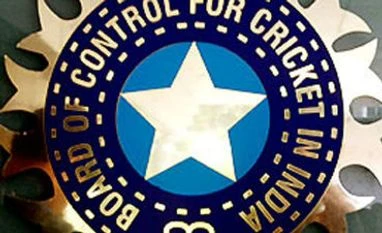A Supreme Court (SC) Bench headed by Chief Justice T S Thakur on Monday reserved its order after the Board of Control for Cricket in India (BCCI) asked for more time to implement the recommendations of the R M Lodha committee.
The Chief Justice did not specify when the order will be passed. The BCCI asked the court for more time to implement the reforms suggested by the panel, stating all state bodies had to be taken into confidence. BCCI President Anurag Thakur said the state units were confused about some of the suggestions and needed more clarity before complying.
The SC’s decision came after two hours of heated arguments on Monday over BCCI’s reluctance to accept all the recommendations of a committee headed by former chief justice Lodha unconditionally. The SC had set up the panel to suggest changes in the BCCI after a match-fixing scandal had erupted in 2013. The SC had asked the BCCI for its reply after the board had refused to accept the Lodha committee’s recommendations.
BCCI President Thakur also filed an affidavit, as asked by the court during the previous hearing. But the board has not submitted an undertaking saying it would implement the panel’s recommendations. Thakur, in his affidavit, has denied allegations that he had asked the International Cricket Council (ICC) Chief Executive Officer David Richardson to issue a letter stating the panel’s recommendations were tantamount to intervention by the government.
Usually, major international sports bodies do not tolerate government intervention in national sports associations. The Indian Olympic Association and the Olympic body of Kuwait were banned after such interventions.
The matter came under the SC’s purview when Richardson told reporters that the BCCI chief had lobbied for ICC’s intervention. Thakur told the court he had pointed out to Shashank Manohar, president of ICC, about his earlier views. According to Thakur, Manohar had put forward the argument internally.
The BCCI counsel argued, in line with its earlier stance, that recommendations such as one state, one vote cannot be implemented.
The one state, one vote rule, if implemented, will reduce the power of various state cricket associations. Maharashtra has four as it houses four cricket associations. Gujarat and West Bengal have three and two, respectively.
Amicus curiae Gopal Subramanium asked the court to appoint an administrator and remove the brass of the BCCI, including Thakur.
The BCCI had been pitching for further hearings as it has claimed it has not been heard entirely.
On Saturday, BCCI members had decided to stick to their stance of opposing major reforms proposed by the three-member Lodha panel.
The Chief Justice did not specify when the order will be passed. The BCCI asked the court for more time to implement the reforms suggested by the panel, stating all state bodies had to be taken into confidence. BCCI President Anurag Thakur said the state units were confused about some of the suggestions and needed more clarity before complying.
The SC’s decision came after two hours of heated arguments on Monday over BCCI’s reluctance to accept all the recommendations of a committee headed by former chief justice Lodha unconditionally. The SC had set up the panel to suggest changes in the BCCI after a match-fixing scandal had erupted in 2013. The SC had asked the BCCI for its reply after the board had refused to accept the Lodha committee’s recommendations.
BCCI President Thakur also filed an affidavit, as asked by the court during the previous hearing. But the board has not submitted an undertaking saying it would implement the panel’s recommendations. Thakur, in his affidavit, has denied allegations that he had asked the International Cricket Council (ICC) Chief Executive Officer David Richardson to issue a letter stating the panel’s recommendations were tantamount to intervention by the government.
Usually, major international sports bodies do not tolerate government intervention in national sports associations. The Indian Olympic Association and the Olympic body of Kuwait were banned after such interventions.
The matter came under the SC’s purview when Richardson told reporters that the BCCI chief had lobbied for ICC’s intervention. Thakur told the court he had pointed out to Shashank Manohar, president of ICC, about his earlier views. According to Thakur, Manohar had put forward the argument internally.
The BCCI counsel argued, in line with its earlier stance, that recommendations such as one state, one vote cannot be implemented.
The one state, one vote rule, if implemented, will reduce the power of various state cricket associations. Maharashtra has four as it houses four cricket associations. Gujarat and West Bengal have three and two, respectively.
Amicus curiae Gopal Subramanium asked the court to appoint an administrator and remove the brass of the BCCI, including Thakur.
The BCCI had been pitching for further hearings as it has claimed it has not been heard entirely.
On Saturday, BCCI members had decided to stick to their stance of opposing major reforms proposed by the three-member Lodha panel.
)
